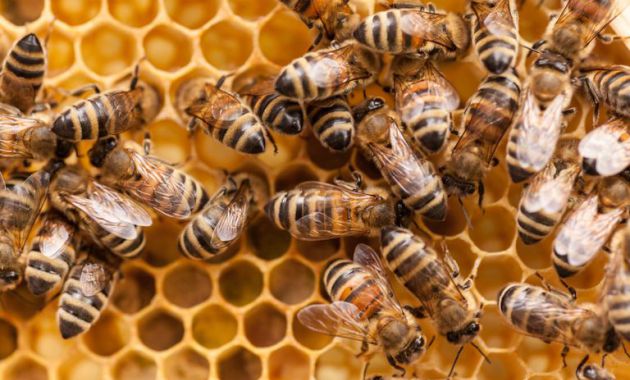Beekeeping has many economic and agricultural benefits to both the farmer and the ecosystem any part ot the world.
Beekeeping is a feasible way to help people work their way out of poverty while at the same time maintaining natural diversity. Honeybees are valued for honey and beeswax production to generate income and medicines. Beekeeping gives some of the world’s poorest people the opportunity to harvest commodities of international quality and value. Issues currently facing our world include poverty, climate change, deforestation, loss of biodiversity, water shortages, pollution and urban sprawl and these often have the greatest negative impact on the most vulnerable people. While beekeeping cannot cure these problems, it offers an environmentally beneficial activity that helps people to fight.
Register for Beekeepin Training
The market for beekeeping and honey production is huge. From cosmetics, medicine, confectioneries, and the pharmaceutical industries, to religious groups, the demand for organic honey and other bi-products is growing. However, despite its huge employment and foreign exchange earning potential, apiculture, as the business is called, is not for the lily-livered. Beekeepers and operators in the local honey production industry are faced with formidable challenges.
BENEFITS OF BEEKEEPING
Apart from the products obtained from bees and the role they play in the environment, other advantages of beekeeping as an enterprise include:
POLLINATION: Bees pollinate flowering plants. This activities is vital for life on Earth. Adequate pollination is essential for maintaining the YIELDS of many food and cash crops.
USEFUL PRODUCTS: Honey is valued across the World as a healthy food and medicine. Beeswax is used in cosmetics, pharmaceuticals, polishes, soaps, candles and many other products.
LAND USE: Bees visit flowers anywhere. Farms, bush, protected areas and other natural habitats all have for beekeeping. Beekeeping does not use up land that could be used for Crops.
LOW COST: Beekeeping can be very low cost. Hives and other equipment can be made locally and Bees are freely available. Bees do not depend upon Beekeeper for food.
Read: The PROSPECTS OF MODERN BEEKEEPING IN NIGERIA
INCOME GENERATION: The scale of Honey and other bee products generates income.
SUSTAINABLE: Beekeeping is sustainable. Beekeepers are friends of the natural environment, willing to conserve forests and vegetation where Bees live and forage.
BENEFITS SEVERAL SECTORS: where there are beekeeping activities, other people in the Community can generate income through the sale of equipment, bees products and secondary products.
COMPARATIVE ADVANTAGE: In areas of Niger Delta where there are abundant natural resources and healthy bees populations, there are opportunities to market Honey as organic or fair trade.
RESILIENT INCOME: Beekeeping is resilient when disaster happens. Displaced Communities can make hives and gain benefit from bees in a relative short time.
GENDER AND AGE INCLUSIVE: Bees can be kept by men and women of all ages. Bees do not need daily care and can be attended to as other work allows.
BEEKEEPING
- Is not expensive or require a expensive tools to manage
- Does not require special food supply as they feed only on the pollen and nectars in flowers, so there is no competition with other crops.
- Basic beekeeping techniques are easy to learn
- Does not require daily attention, it can therefore be combined with other form of enterprises
- Helps to generate self – reliance
- Does not require or use land needed for crops. Bees collect nectar or pollen from where they can, so wild cultivated and wasteland areas all have value for beekeeping.
- Bees can be kept by people of all ages. Bees do not need daily care and beekeeping can be done when other work allows.
- Beekeepers have a financial reason to conserve the employment; ensuring that flowers are available and bees are protected.
- Bees pollinate cultivated crops and wild plants.
- Beekeeping generates income without destroying habitat.

